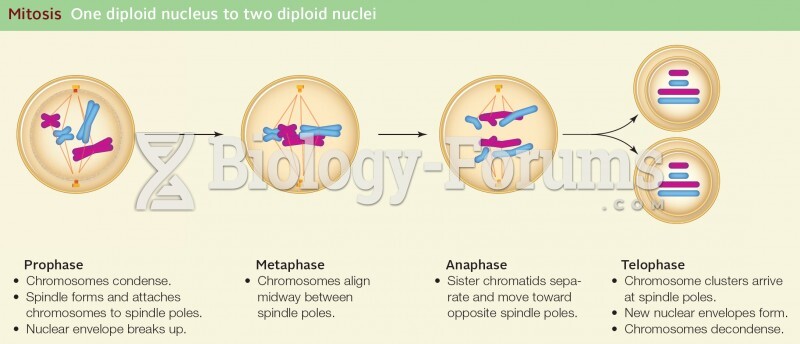|
|
|
In the ancient and medieval periods, dysentery killed about ? of all babies before they reach 12 months of age. The disease was transferred through contaminated drinking water, because there was no way to adequately dispose of sewage, which contaminated the water.
When blood is exposed to air, it clots. Heparin allows the blood to come in direct contact with air without clotting.
Medication errors are more common among seriously ill patients than with those with minor conditions.
In the United States, an estimated 50 million unnecessary antibiotics are prescribed for viral respiratory infections.
Pregnant women usually experience a heightened sense of smell beginning late in the first trimester. Some experts call this the body's way of protecting a pregnant woman from foods that are unsafe for the fetus.






